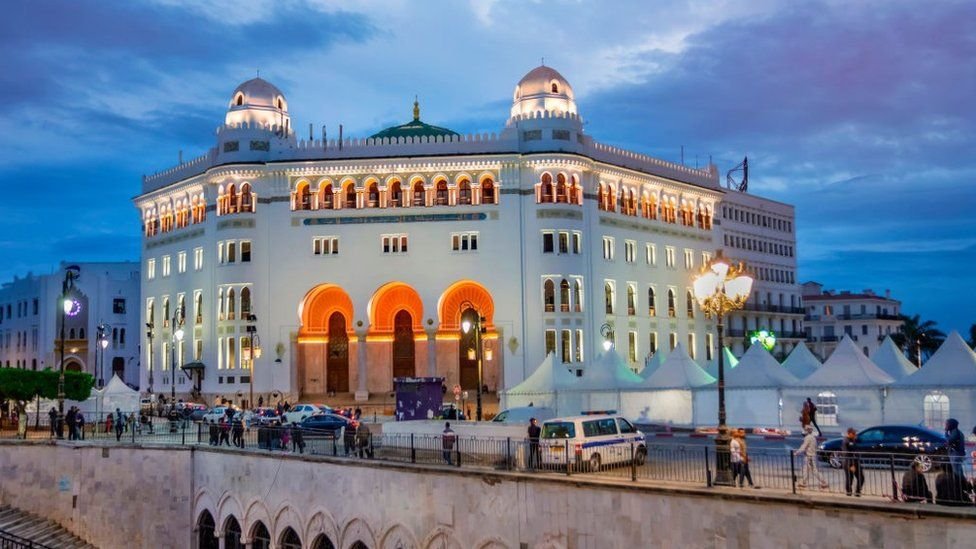In our series of letters from African journalists, Maher Mezahi writes about Algeria’s latest move to distance itself from France, the former colonial power.
The three main streets of the centre of the Algerian capital all radiate from the Grande Poste, a neo-Moorish edifice which sits above the city’s majestic bay.
From the central post office they leave the Mediterranean to the north and lead into the east, west and south of Algiers.
Throughout 132 years of French colonisation the streets were respectively known as rue d’Isly, Boulevard Michelet and rue Sadi Carnot.
After independence, Algerian governments made strenuous efforts to erase these vestiges of French rule.
Therefore the three central streets of Algiers took on the names of revolutionaries: Didouche Mourad replaced Michelet, rue d’Isly became Larbi Ben M’Hidi and Sadi Carnot conceded its place to the young heroine Hassiba Ben Bouali.
While Algerians took to “Didouche” or “Hassiba” it was always curious to me that the majority of locals stuck to calling “Rue d’Isly” by its colonial name.
There’s no rhyme or reason that explains why some places take on new names and others do not – it is just proof that language is a living organism that doesn’t always conform to official diktats.
More than half a century after the great decolonisation movements of the 1950s and 1960s, language politics remain relevant.
Last month, Algeria’s President Abdelmadjid Tebboune announced that the North African nation would be pivoting from teaching French to English as a second language in public primary schools this upcoming academic year.
“It is a reality that English is the international language,” he said.
Yet, for many Algerians, the landmark decision harks back to the inefficiency of the 1970s when Algeria’s socialist President Houari Boumediene pursued an aggressive policy of “Arabisation”, which fully transformed the country’s legal and education system to standardised Arabic.
To compensate for the lack of classical Arabic speakers, Algeria swiftly imported thousands of language teachers from Egypt and Iraq, who at times culturally clashed with Algerians.
Although Algerian linguistic expert Abderrazak Dourari refuses to make a value judgement about the decision to prioritise English over French, he is concerned about the lack of qualified teachers and teaching material.
“You can’t bring back a translator and say he’s a teacher. It’s not possible, it makes no sense,” he told the internet news site Tout Sur l’Algérie.
But among the working and political classes in Algeria, there seems to be a genuine willingness to move away from France’s political, economic and cultural influence.
Algeria recently did not renew public contracts with French companies in sectors such as transport and water management, giving them instead to local firms.
And culturally, Algerians are nowadays much more drawn to Turkish soap operas or American streaming services such as Netflix than traditional French television programmes.
In an increasingly globalised world, the decision to gravitate towardsEnglish as a second language probably makes sense”
Instagram and TikTok have young Algerians conversing in English in coffee shops up and down Didouche.
The general perception is that French is the elitist language of the middle-aged upper class.
Maghrebi Arabic – which includes lots of Amazigh, French and Spanish words – dominates casual conversation, while classical Arabic is reserved for newspapers and judicial affairs.
I can personally attest to the enthusiasm of young Algerians to learn English.
Every time I worked at an IT start-up or in video production we almost exclusively spoke in English.
In an increasingly globalised world, the decision to gravitate towards English as a second language probably makes sense.
But its success will be determined by the way it is implemented, and whether Algeria can get enough qualified English teachers and learning material.
In https://www.bbc.com/news/world-africa-62476405





